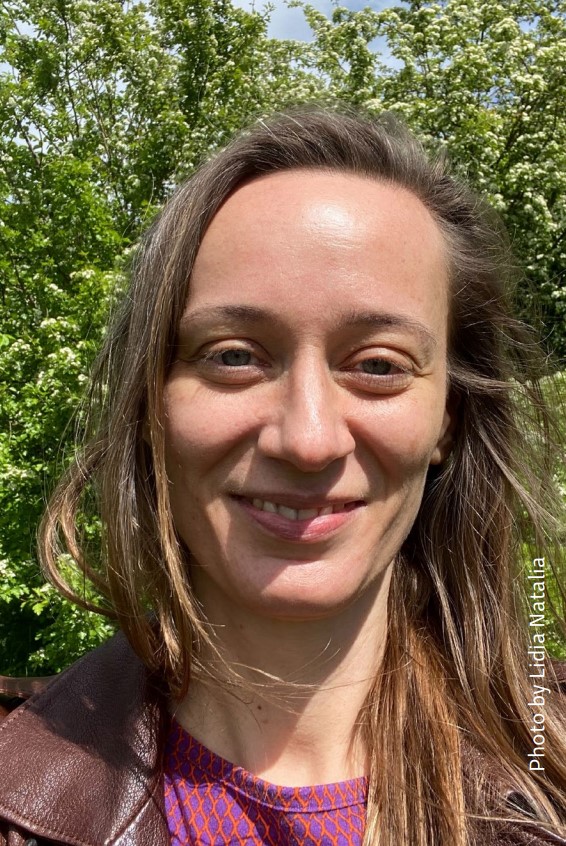Special Focus: EU Green Deal - Introducing the MCAA ‘Resources and Climate Change’ Task Force
Newsletter
The MCAA is closely monitoring the EU Green Deal’s publications. The Policy Working Group plays a key role and has set up a special “Resources and Climate Change” Task Force. We met Lidia Natalia Trusilewicz who told us about activities led by the task force.
Lidia Natalia Trusilewicz, in her own words
I am a PhD senior scientist and postdoctoral subject matter expert, science communicator, and R&D events’ organiser, as well as a professional volunteer in the fields of engineering science, and sustainability.
Since 2017, I am an honoured representative of the Marie Skłodowska-Curie Actions (MSCA) programme thanks to the award of the European Commissioner for Education, Youth, Sport and Culture.
My directional academic background is a Master of Science in Environmental and Chemical Engineering, which I obtained with honours at the West Pomeranian University of Technology in Szczecin (Poland), in 2004. Instead, my doctoral studies focused on Industrial Manufacturing and Construction Science and concluded in a thesis defence and “CUM LAUDE” qualification at the Universidad Politécnica de Madrid (Spain) in 2014, for which I was also conferred the Extraordinary Doctoral Award a year later.

My first recent-undergraduate steps into an interdisciplinary opportunity to develop a sustainable, scientific approach belong to the MSCA programme and were on “Advanced Research Training on Conservation of Cultural Heritage” when I was awarded the FP6-MSCA-EST-2004 Fellowship (2005) at Eduardo Torroja Institute for Construction Science – CSIC (Spain). I repeated the MSCA distinction many years after on “Management of Municipal Water Waste Treatment Plants Potential by-Products of Sewage Sludge Ash type, as Active or non-Active Additions to Portland Cement-based Binders” when I was awarded the H2020-MSCA-IF-2016 Fellowship (2017) upon scientific supervision of the AGH University of Science and Technology in Poland.
One stays a MSCA fellow for good and no matter what professional activities are taken later on!
Since January 2018, I am also a regular Subject Matter Expert and Project Monitor of the European Commission in the interdisciplinary disciplines’ areas of Civil and Environmental Engineering and Circular Economy, sharing a many-year experience gained in both private and public research dedicated to many other EU institutions and entities.
I officially joined the MCAA community in 2017 and I am an active part of the Policy Working Group, dedicating my time to the leadership of the “Responsible Research Environments” Task Force. Finally, I convoke and take care of the “Resources and Climate Change” Task Force unit to extend the PWG’s activities regarding the European Green Deal expertise ever since April 2020.
The MCAA Policy Working Group has been closely following the EU Green Deal since its launch in 2019. “As a direct consequence, the request of drafting a research agenda arose and the MCAA task force was created as part of the Policy WG activities,” explains Lidia Natalia.
Past activities
The “Resources and Climate Change” Task Force pretends to gather MCAA volunteers with diverse backgrounds. “We especially welcome the engineering scientists at present but that’s not the primary condition, of course!”. One of the objectives of the task force is, amongst others, to bring answers to the new challenges scientists may encounter in the field of climate change.
A recent event organised by the task force that already took place in the past months dealt with the “EU Green Deal Research Charter assessment in global pandemic times.” This session panel was held during the latest MCAA Annual Conference “Research in times of crisis” from 5 to 7 March 2021.
“However, it all started with the ESOF2020 EuroScience Open Forum conference, when we organised our first panel session on: ‘The prestige of scientific expertise vs. technology demand - parallel routes for a common innovative purpose?’” Thanks to the new inspirations from the post-pandemic landscape especially, the task force has recently started working on an elaborated Green Deal charter draft, which has not been formalised yet.
Upcoming plans
MCAA members will continue working on the EU Green Deal charter as well as analysing the EU Green Deal’s documents and conceptual derivates from the perspective of postpandemic scenarios and environmental economy.
What’s more, new lessons learnt by other communities are currently being discussed within the task force, such as the “trilemma” identified by the International Energy Charter between energy security, economic development, and environmental protection. “We bring scopes, objectives, and participative approach of our community in delivering the Green Deal deadlines. We shape ahead the researchers’ responsibilities not always centred in academia or very often far beyond it instead. We finally sustain the postpandemic green perspective by providing evidence-based solutions that actually are meaningful and viable,” emphasises Lidia Natalia.

MCAA’s potential contribution to the Green Deal
According to the Alumna, the role of the MCAA is paramount to help implement the objectives of the Green Deal. “Our MCAA international community and the Policy WG particularly can contribute substantially through policy recommendations and specific evidence-based expertise to shape them appropriately,” she says.
To Lidia Natalia, “the MCAA by gathering the MSCA-based pioneers of our scientific community contributes to developing researchers’ roles, as well as by promoting their masterful authority through, what showed to be crucial the last year especially, an effective and efficient science communication and transfer of knowledge among differentiated series of audiences and a proficient decision-making process – here we are consciously for all this!”
Aurélia Chaise
MCAA Editorial Team